A Prayer and Fasting Devotional
Hear the word of the LORD,
you rulers of Sodom!
Give ear to the teaching of our God,
you people of Gomorrah!
"What to me is the multitude of your sacrifices?
says the LORD;
I have had enough of burnt offerings of rams
and the fat of well-fed beasts;
I do not delight in the blood of bulls,
or of lambs, or of goats.
"When you come to appear before me,
who has required of you
this trampling of my courts?
A Prayer and Fasting Devotional
Acclaimed author and social critic Dr. Os Guinness was the special guest speaker at the Christian Union New York City Forum. (52:02)
A Prayer and Fasting Devotional
Give up? It is this: “. . . because God has said, ‘Never will I leave you; never will I forsake you.’”
Click the image above to view Christian Union's 2015 Annual Report. If you do not see an image, download a .pdf version of the 2015 annual report.
Seeking God & Building Bridges
Forums and Salons Develop Thoughtful Christian Engagement in Wide-Ranging Topics Throughout Year
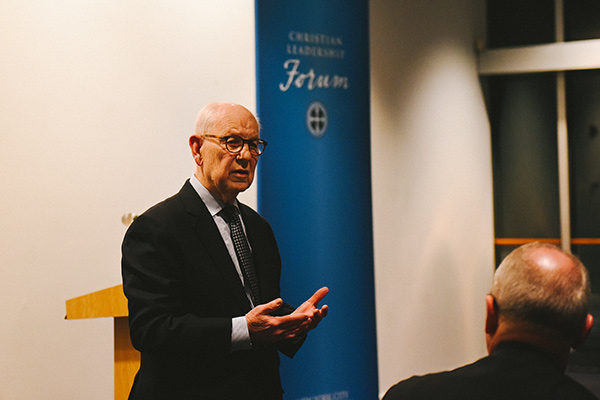
Forums on Christian Leadership
Forums occur quarterly, in venues suitable for 100-150 participants. Topics address broad themes of Christian leadership, and keynote speakers will include inspiring Christians who are leaders in their respective fields. These events are excellent networking opportunities among Christian professionals who are growing in their vision, strategy and effectiveness to change New York City and Washington, DC culture for Christ.Recent forum speakers include:
- Dr. Robert Louis Wilken, Professor Emeritus of the University of Virginia (pictured, above)
- Dr. Os Guinness, Author and Social Critic
- Mako Fujimura, Artist and Director
- Abbie Killeen, Producer Babette's Feast
- Cherie Harder, President The Trinity Forum
- Dr. David R. Young, Founder and Chairman of Oxford Analytica
- Dr. Anthony Bradley, Associate Professor of Religious Studies at The King's College in New York City
- Matthew Bishop, US Business Editor and New York Bureau Chief for The Economist
- Fernando Cabrera, NYC Council Member and senior pastor of New Life Outreach International
Salons
Salons provide an intimate gathering for around 20 Christian leaders at a time to develop strong ties, and interact on a more narrowly defined topic that strengthens either the intellectual or supernatural dimensions of your Christian faith. Expert speakers will go in-depth, but the setting affords participants opportunities for question and answer, and interaction with the speaker, as well as one another. If you are interested in hosting a salon, please contact: cunewyork@christianunion.org.Upcoming salons are announced in Christian Union New York Events.
- Jeff Smith, President Generosity NY
- Jay Jakub, Director of Eternal Research at Mars Catalyst
- Paul Horrocks, President Rocksurance Solutions
- Ken Fish, Founder Kingdom Fire Ministries
- Dr. Seth Ward, Music Director at Central Presbyterian Church in Manhattan
- Michael Rowntree, Senior Pastor of Wellspring Church in Fort Worth, Texas
- Joseph Loconte, PhD, Associate Professor of History, The King's College, New York City
- Dr. Gordon Isaac, Berkshire Associate Professor at Gordon-Conwell Seminary
- Prof. Paul Lim, Associate Professor of the History of Christianity, Vanderbilt University, Divinity School
Past Events
Click here to view past events and correlating video and audio recordings. Questions
For more information on Christian Union New York please email cunewyork@christianunion.org and for more information on Christian Union.Christian Union New York highlight thoughtful leaders in various fields speaking on leading and engaging the world with faith. These forums provide an opportunity for Christian leaders to discuss and debate the role and implications of faith in the public square.
Excellent Additions to Your Reading List
The Square and the Tower: Networks and Power, from the Freemasons to Facebook
by Niall Ferguson

The 21st century has been hailed as the Age of Networks. However, in The Square and the Tower, Niall Ferguson argues that networks have always been with us, from the structure of the brain to the food chain, from the family tree to freemasonry. Throughout history, hierarchies housed in high towers have claimed to rule, but often real power has resided in the networks in the town square below. For it is networks that tend to innovate. And it is through networks that revolutionary ideas can contagiously spread. Just because conspiracy theorists like to fantasize about such networks doesn't mean they are not real. (Amazon)
The Common Rule: Habits of Purpose for an Age of Distraction
by Justin Whitmel Earley
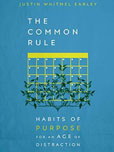
Twenty-first-century Christianity has experienced a much-needed renaissance in its theology of work, but it takes formational habits to work with the purpose we preach, and this ingredient is still largely missing from the conversation. In the meantime our workplaces are being fragmented by the distractions of technology, uncontrollable busyness, and the question of whether we want a job driven by purpose or upward mobility. This book addresses the need to pair our theology on the meaning of work with the formational practice of spiritual work habits in order to bring order and purpose back to the workplace - and to our lives.
True Paradox: How Christianity Makes Sense of Our Complex World
by David Skeel
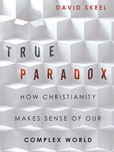
Although the twentieth century saw several landmark contributions to Christian apologetics, these Christian classics have lost some of their effectiveness in an era when America is more pluralistic than ever before and many Americans imagine that science has explained or will soon explain all of the mysteries of life. Skeel, however, argues that Christianity actually offers better explanations than materialism or other perspectives for many of the most important puzzles of our existence - such as our idea-making capacity, our perceptions of beauty and suffering, and our repeated optimism that we can create a truly just social order and repeated failure to do so.
On Reading Well: Finding the Good Life through Great Books
by Karen Swallow Prior

Reading great literature well has the power to cultivate virtue. Great literature increases knowledge of and desire for the good life by showing readers what virtue looks like and where vice leads. It is not just what one reads but how one reads that cultivates virtue. Reading good literature well requires one to practice numerous virtues, such as patience, diligence, and prudence. And learning to judge wisely a character in a book, in turn, forms the reader's own character.
Prior takes readers on a guided tour through works of great literature both ancient and modern, exploring twelve virtues that philosophers and theologians throughout history have identified as most essential for good character and the good life. (Amazon)
The Road to Character
by David Brooks
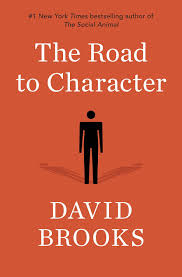 "Brooks focuses on the deeper values that should inform our lives. Responding to what he calls the culture of the Big Me, which emphasizes external success, Brooks challenges us, and himself, to rebalance the scales between our "résumé virtues"—achieving wealth, fame, and status—and our "eulogy virtues," those that exist at the core of our being: kindness, bravery, honesty, or faithfulness, focusing on what kind of relationships we have formed." (Amazon)
"Brooks focuses on the deeper values that should inform our lives. Responding to what he calls the culture of the Big Me, which emphasizes external success, Brooks challenges us, and himself, to rebalance the scales between our "résumé virtues"—achieving wealth, fame, and status—and our "eulogy virtues," those that exist at the core of our being: kindness, bravery, honesty, or faithfulness, focusing on what kind of relationships we have formed." (Amazon)A Hobbit, a Wardrobe, and a Great War: How J.R.R. Tolkien and C.S. Lewis Rediscovered Faith, Friendship, and Heroism in the Cataclysm of 1914-1918
by Joseph Loconte
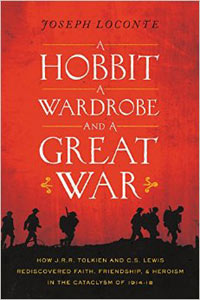 "The First World War laid waste to a continent and permanently altered the political and religious landscape of the West. For a generation of men and women, it brought the end of innocence—and the end of faith. Yet for J. R. R. Tolkien and C. S. Lewis, the Great War deepened their spiritual quest. Both men served as soldiers on the Western Front, survived the trenches, and used the experience of that conflict to ignite their Christian imagination. Had there been no Great War, there would have been noHobbit, no Lord of the Rings, no Narnia, and perhaps no conversion to Christianity by C. S. Lewis." (Amazon)
"The First World War laid waste to a continent and permanently altered the political and religious landscape of the West. For a generation of men and women, it brought the end of innocence—and the end of faith. Yet for J. R. R. Tolkien and C. S. Lewis, the Great War deepened their spiritual quest. Both men served as soldiers on the Western Front, survived the trenches, and used the experience of that conflict to ignite their Christian imagination. Had there been no Great War, there would have been noHobbit, no Lord of the Rings, no Narnia, and perhaps no conversion to Christianity by C. S. Lewis." (Amazon)by Stephen Hess
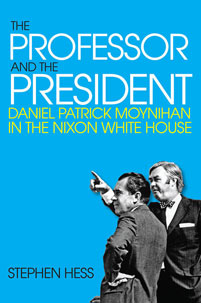 "Written by Stephen Hess, who served on the White House staff during both the Eisenhower and Nixon presidencies, this book is a uniquely personal account of what happened behind closed doors when conservative Richard Nixon made Daniel Patrick Moynihan, a liberal Ivy League professor, his top urban affairs adviser." (Brookings)
"Written by Stephen Hess, who served on the White House staff during both the Eisenhower and Nixon presidencies, this book is a uniquely personal account of what happened behind closed doors when conservative Richard Nixon made Daniel Patrick Moynihan, a liberal Ivy League professor, his top urban affairs adviser." (Brookings)Ministers at War: Winston Churchill and His War Cabinet
by Jonathan Schneer
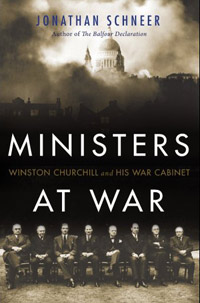 "Ministers at War tells the gripping story of how the man who certainly saved Britain and arguably saved western civilization managed his cabinet "team of rivals," a coalition of men who had spent most of their interrelated, pre-war political lives at daggers drawn." (First Things)
"Ministers at War tells the gripping story of how the man who certainly saved Britain and arguably saved western civilization managed his cabinet "team of rivals," a coalition of men who had spent most of their interrelated, pre-war political lives at daggers drawn." (First Things)To Change the World: The Irony, Tragedy, & Possibility of Christianity in the Late Modern World
by James Davison Hunter
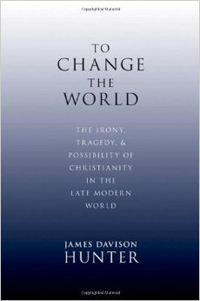 "The call to make the world a better place is inherent in the Christian belief and practice. But why have efforts to change the world by Christians so often failed or gone tragically awry? And how might Christians in the 21st century live in ways that have integrity with their traditions and are more truly transformative?
"The call to make the world a better place is inherent in the Christian belief and practice. But why have efforts to change the world by Christians so often failed or gone tragically awry? And how might Christians in the 21st century live in ways that have integrity with their traditions and are more truly transformative? Hunter argues that all too often current political theologies worsen the very problems they are designed to solve. What is really needed is a different paradigm of Christian engagement with the world, one that Hunter calls "faithful presence"-- an ideal of Christian practice that is not only individual but institutional; a model that plays out not only in all relationships but in our work and all spheres of social life." (Amazon)
Leadership for the New York Ministry
Linda L. Huang, DDS, MD, FACS
 A Columbia University School of Dental Medicine graduate and clinical professor, Linda is one of the most specialized dental and oral surgeons in the New York area. She owns her own highly successful practice, serves on medical missions, frequently offers prayers with and for her patients, and serves on the ministry team for CU NY’s Gospel of the Kingdom Conferences.
A Columbia University School of Dental Medicine graduate and clinical professor, Linda is one of the most specialized dental and oral surgeons in the New York area. She owns her own highly successful practice, serves on medical missions, frequently offers prayers with and for her patients, and serves on the ministry team for CU NY’s Gospel of the Kingdom Conferences.
Chris Shortell 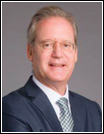 Chris is a graduate of Cornell University who has held various leadership roles in the U.S. and Asia in insurance and international trade while living in some of the most dynamic cities such as Tokyo, Hong Kong, Singapore and Shanghai, and is the former Euler Hermes China CEO. He is now moving back to NYC to permanently re-join his wife, Joon, after a stint of overseas commuting in the wake of the global pandemic, and is passionate about mentoring young men.
Chris is a graduate of Cornell University who has held various leadership roles in the U.S. and Asia in insurance and international trade while living in some of the most dynamic cities such as Tokyo, Hong Kong, Singapore and Shanghai, and is the former Euler Hermes China CEO. He is now moving back to NYC to permanently re-join his wife, Joon, after a stint of overseas commuting in the wake of the global pandemic, and is passionate about mentoring young men.
Joon Shortell
 Joon is a graduate of the Parson School of Design with a concentration in Fashion Design, and was a clothing designer and boutique owner. Joon’s passion and zeal for Bible teaching, prayer, and a move of the Holy Spirit have her now using her time primarily serving the kingdom of Jesus globally and in NYC.
Joon is a graduate of the Parson School of Design with a concentration in Fashion Design, and was a clothing designer and boutique owner. Joon’s passion and zeal for Bible teaching, prayer, and a move of the Holy Spirit have her now using her time primarily serving the kingdom of Jesus globally and in NYC.
Give thanks to the LORD, for he is good; his love endures forever — 1 Chronicles 16:34
Bearing God's Name in Vain
By Nick Nowalk
From ChristianUnion.org

Earlier in 2014, Christian Union Teaching Fellow Nick Nowalk delivered a plenary presentation at the Ivy League Congress on Faith and Action, on perhaps the least understood of the ten commandments. Watch the video (45:26) or listen to the audio.
Read More >
Sixth Court Sanity
By R. R. Reno
From First Things
It was a relief to read the measured, intelligent analysis of Judge Jeffrey Sutton. He wrote the majority opinion for a Sixth Circuit Court of Appeals panel. It determined that state laws defining marriage as between a man and a woman do not violate the U.S. Constitution.
Read More >
Religion in China - Cracks in the Atheist Edifice
From The Economist

The Rapid Spread of Christianity is Forcing an Official Rethink on Religion. The coastal city of Wenzhou is sometimes called China’s Jerusalem. Ringed by mountains and far from the capital, Beijing, it has long been a haven for a religion that China’s Communist leaders view with deep unease: Christianity.
Read More >
Seeking God
From ChristianUnion.org
One of Christian Union's distinctives is its emphasis on a seeking God lifestyle. Learn more about the process of drawing close to God.
Read More >
Multiplying Sorrows: the Folly of Idolatry
By Scott Jones
From ChristianUnion.org
What do you most often wake up thinking about? When your head hits the pillow at night, where do your thoughts most often go? Such questions are helpful in identifying idols in our lives. As pastor and author Tim Keller so skillfully reminds us, what we most desire in life...
Read More >
Listening to Young Atheists: Lessons for a Stronger Christianity
By Larry Alex Taunton
From The Atlantic
When a Christian foundation interviewed college nonbelievers about how and why they left religion, surprising themes emerged.
Read More >
You are Invited to Attend the NYC 2014 Benefit Event, Honoring Professor Robert P. George
From ChristianUnion.org
At the New York City Benefit Event on December 9, Christian Union will celebrate all that God is doing in students' lives at eight strategic universities and will present the Christian Leader of the Year Award to Robert P. George.
Please join us for an inspiring evening.
Learn More >
Prayer Requests
Pray for the ongoing discussion of sex and spirituality at Harvard. The Christian Union faculty have spent the last two weeks addressing a wide range of topics relating to sexuality and have seen the students grow in a deeper understanding of the Gospel.
Pray for students at Dartmouth who are in the midst of their final exams. Also pray for students to continue to pursue a lifestyle of seeking God during the upcoming five-week break between quarters.
Praise the Lord for stirring up students at Brown to seek Him and for the evidence of their developing community — please pray that this would continue.
The Lord is merciful and gracious,
slow to anger and abounding in steadfast love.
He will not always chide,
nor will he keep his anger forever.
He does not deal with us according to our sins,
nor repay us according to our iniquities.
For as high as the heavens are above the earth,
so great is his steadfast love toward those who fear him;
as far as the east is from the west,
so far does he remove our transgressions from us.
— Psalm 103:8-12
A Video Interview with Norm Miller
By Matt Bennett
From ChristianUnion.org

At the Christian Union Benefit Event and Celebration in October, in Dallas, Interstate Batteries Chairman Norm Miller was honored as the Texas Christian Leader of the Year. In this video (length 31:16), Norm is interviewed during the event by Christian Union's president.
Watch now >
Earlybird Ticket Deadline for NYC Benefit Event Today
From ChristianUnion.org
You are invited to join us in New York City for the second of two 2014 Christian Union Benefit Events and Celebrations. The event will be in New York on December 9th, and tickets are still available. Young adult prices are available as well. Come to celebrate God's work and greatness, and hear from honoree Prof. Robert P. George, who will be honored during the event.
Read More >
http://www.youtube.com/embed/pYPxM-zNF7w
Princeton Professor Exhorts International Students
By Catherine Elvy, Staff WriterMiracles serve as a profound revelation of the love of God, who also actively sustains creation.
The Lord demonstrated immeasurable compassion toward mankind in the greatest miracle of the universe, namely the resurrection of Christ from the dead.
"I believe in the grand miracle," said Robert Prud'homme, a Princeton University professor of chemical and biological engineering, during a recent dinner for International Students, Inc. "There is nothing more miraculous than that."
Dartmouth Students Pledge Devotion to Christ
by Eileen Scott, Senior Writer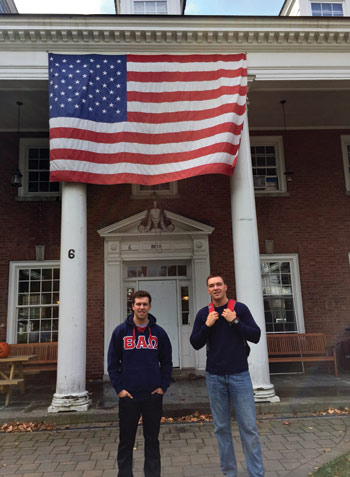 Dartmouth College, often seen as a poster school for parties and raucous Greek life, recently garnered media attention for sexual assaults, alcohol infractions, and abusive hazing practices.
Dartmouth College, often seen as a poster school for parties and raucous Greek life, recently garnered media attention for sexual assaults, alcohol infractions, and abusive hazing practices.However, there are a few voices crying out in the wilderness, and they are resonating from within a fraternity house.
A handful of Christian young men at Dartmouth have found a home at the Beta Alpha Omega Fraternity and, despite the debauchery associated with Greek life, have assimilated with their faith, morals, and dignity intact. And that, they say, is the result of prayerful preparation and intentional faith.
Columbia Pitcher Is a Leader with Christian Union
by Catherine Elvy, Staff Writer A pitcher on Columbia University's baseball team recently paused to reflect on his faith after he was among 11 players to win All-Ivy League status.
A pitcher on Columbia University's baseball team recently paused to reflect on his faith after he was among 11 players to win All-Ivy League status.Adam Cline, who touts Christian Union's leadership development ministry at Columbia among his favorite collegiate activities, received the honor in May, less than a week after the Lions clinched the Ivy League Championship for the second season in a row.
"I pray before every game," said Cline,
Harvard Alumnus Embraces Christian Union's Holistic Approach
by Sarah Camp, Contributing Editor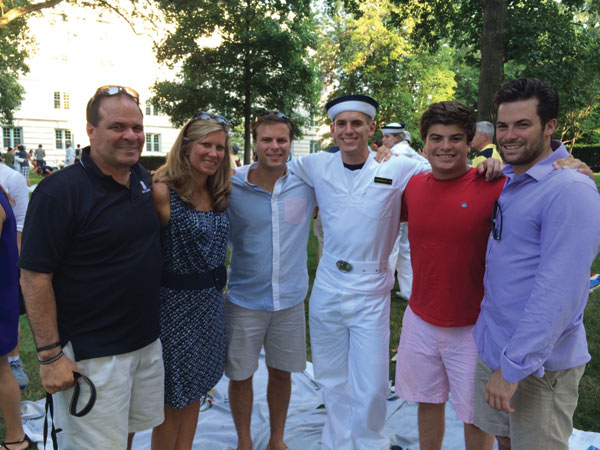 For Harvard alumnus Tony Cimmarrusti and his wife Martha, supporting causes they care about is an endeavor to model the love of Christ, and it is something that "is a major fabric in the life of our family."
For Harvard alumnus Tony Cimmarrusti and his wife Martha, supporting causes they care about is an endeavor to model the love of Christ, and it is something that "is a major fabric in the life of our family."Cimmarrusti (Harvard '81, HBS '86) is CEO and co-founder, with Bryce Gray, of Majestic Capital Management. In a dynamic, wide-ranging career, he has worked on Wall Street and at the Chicago Board of Trade; developed real estate; led numerous family offices; and served as CIO for the Majesty Fund since 1995. He explains how he and his wife discern which charitable organizations to support,
California's De-Recognition of InterVarsity Raises Concerns
by Catherine Elvy, Staff Writer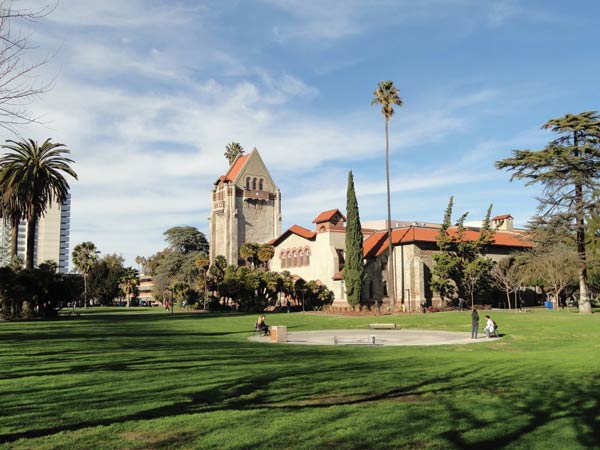 Campus ministries are facing a mounting series of equal-access challenges from colleges across the nation.
Campus ministries are facing a mounting series of equal-access challenges from colleges across the nation.Among the action, California's public university system recently denied recognition to InterVarsity Christian Fellowship because it requires student leaders to observe Christian beliefs.
In September, the California State University ended recognition for InterVarsity's chapters because they mandate student leaders to adhere to Christian doctrine.
"This could be the tipping point of other university systems moving in this direction, so that's why we are concerned," said Alec Hill, president of InterVarsity, in an article for Christianity Today. "It's as if the First Amendment now protects Greeks, but not religious folks, which is Alice in Wonderland stuff."
Scholar Sheds Light on Campus Hookup Culture
By Luke Foster, Columbia '15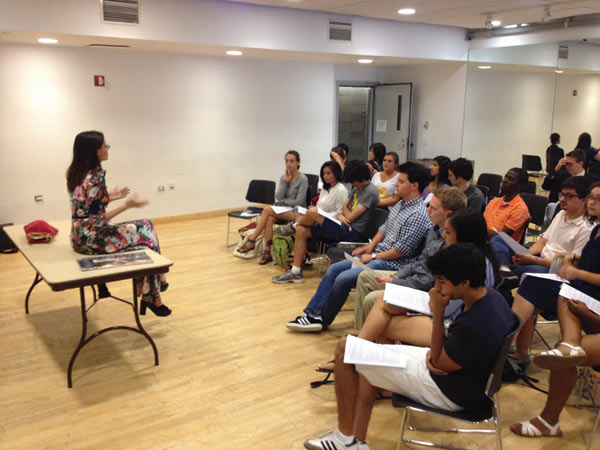 The first few weeks of classes are always an overwhelming time for new students on Ivy League campuses. The pace and pressures begin to mount; stress increases, if anything, faster than the workload. And these first weeks are also a proving ground for the moral and spiritual decisions that shape college experiences and lives to come. The party and hookup culture plays a major role. It's easy to think that hooking up is the only way to have fun, and many students from Christian backgrounds turn away from their faith to follow a seductive path.
The first few weeks of classes are always an overwhelming time for new students on Ivy League campuses. The pace and pressures begin to mount; stress increases, if anything, faster than the workload. And these first weeks are also a proving ground for the moral and spiritual decisions that shape college experiences and lives to come. The party and hookup culture plays a major role. It's easy to think that hooking up is the only way to have fun, and many students from Christian backgrounds turn away from their faith to follow a seductive path.At Columbia, the dark underbelly of the hookup culture has been vividly highlighted in recent weeks.
Edifying, Serving the Body of Christ
by Dr. Craig S. Keener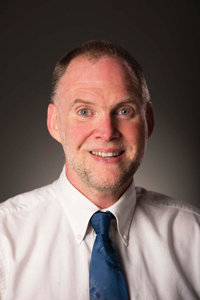 Paul declares that we are the body of Christ with many members. He then elaborates on some of the varied gifts God has graciously given us to serve the rest of Christ's body. Because Paul is simply offering samples, he provides several different lists that include a variety of ministries. These gifts for helping the other members in Christ's body include such diverse ministries as giving, teaching, prophesying, speaking wisely, healings, worship leading, and evangelism (Rom. 12:6-8; 1 Cor. 12:8-10, 28-30; 14:26; Eph. 4:11).
Paul declares that we are the body of Christ with many members. He then elaborates on some of the varied gifts God has graciously given us to serve the rest of Christ's body. Because Paul is simply offering samples, he provides several different lists that include a variety of ministries. These gifts for helping the other members in Christ's body include such diverse ministries as giving, teaching, prophesying, speaking wisely, healings, worship leading, and evangelism (Rom. 12:6-8; 1 Cor. 12:8-10, 28-30; 14:26; Eph. 4:11).Paul nowhere distinguishes between what we might call supernatural and potentially natural gifts.
Princeton Ministry Fellow Leads Missions Trip
by Eileen Scott, Senior Writer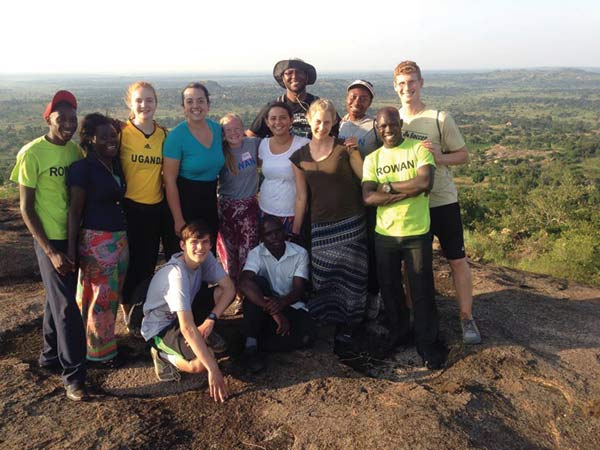 A former basketball coach for an elite high school program, James Fields approaches ministry with the same intensity, helping university students achieve victory through Christ.
A former basketball coach for an elite high school program, James Fields approaches ministry with the same intensity, helping university students achieve victory through Christ.Case in point was a missions trip to Mawanga, Uganda, sponsored by Christian Union this summer. Fields, a Christian Union ministry fellow at Princeton, and Asha Garretson, a Christian Union ministry fellow at Cornell, led the missions team, which was comprised of six students from Cornell, Harvard, Yale, and Dartmouth.












